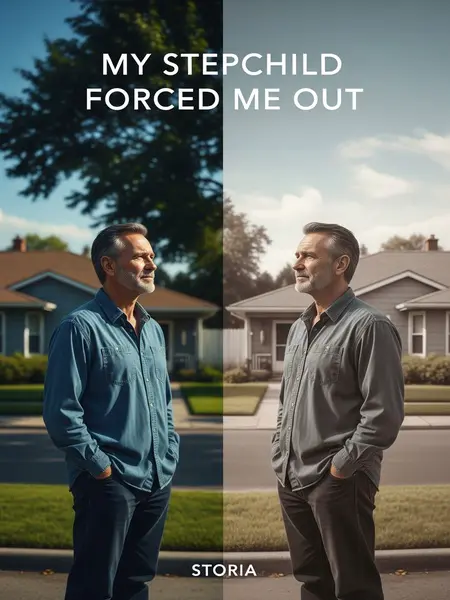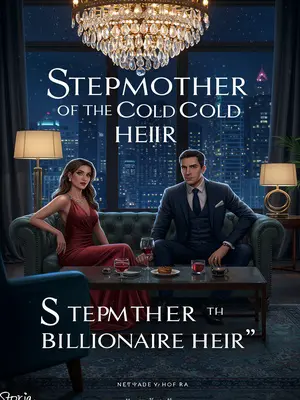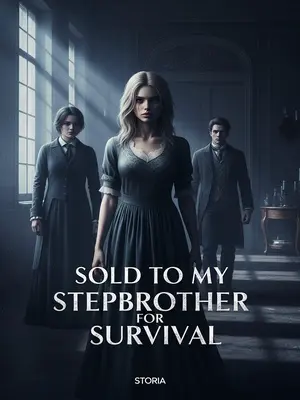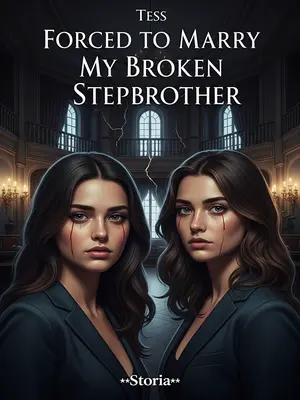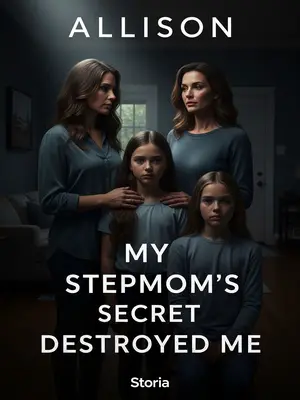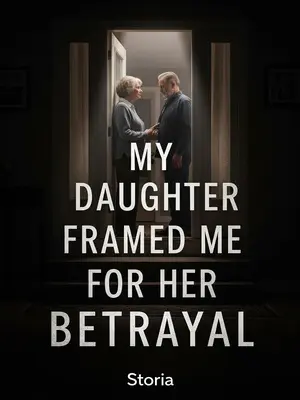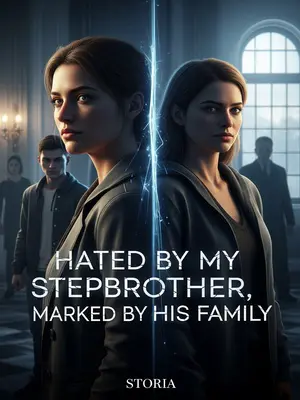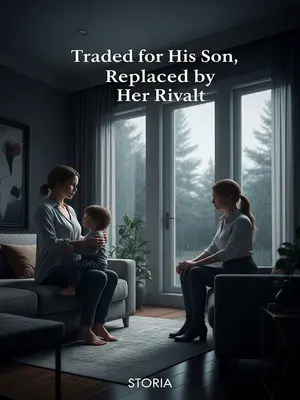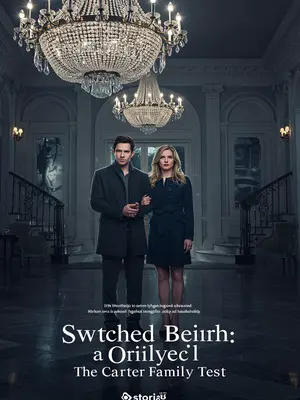Chapter 3: A Harder Heart
Days passed as usual, and I started working at the cafeteria. I learned to move with the rhythm of the kitchen—sizzling pans, chatter of lunch lines, the metallic clatter of trays. The old crew was still there: Hank with his coffee breath and endless gossip, Lila who snuck extra pie to her favorites. The place smelled like fried onions and old memories.
The plant decided that after Linda gave birth, she would take over her late husband’s job. That’s how it worked in our town—when tragedy struck, the factory tried to take care of its own. It was small comfort, but it kept food on the table. Folks nodded their approval, talking quietly about how Linda was strong, how she’d bounce back.
Things often went missing from the cafeteria—sometimes peanuts, sometimes ketchup—but always in small amounts, not worth pursuing. It was the kind of pilfering everyone knew about but nobody wanted to fight over. A few peanuts, a ketchup packet—petty stuff. But we kept an eye out, just in case.
That morning, before I even entered the cafeteria, Hank pulled me into the storeroom. He was breathless, waving his hands, eyes wide like he’d caught a bank robber. The air in the storeroom was cold and sharp, and I could tell something was up.
"Boss, look—these rows of cabbages have all had their hearts stolen."
Hank pointed to the crates, showing where someone had dug out the best parts. I knelt down, inspecting the mess, and felt a twinge of worry.
"Who did this? Any clues?"
He shook his head. "Somebody said they saw a kid sneaking around, but nobody can swear it was him."
The workers grumbled in the background, each certain they knew the culprit but unwilling to say names. In a small town, everyone knows everyone’s business, but nobody wants to point fingers at a neighbor’s kid.
Back then, stealing was a serious crime. If word got out, it could mean a trip to the sheriff’s office, maybe worse. Folks didn’t take kindly to thieves, even if they were just hungry kids.
"Let’s take turns keeping watch from now on."
I tried to sound stern, but my gut twisted. I already knew who it was—Danny, same as before. History, it seemed, was stubborn.
I remembered his small hands, dirty and trembling, clutching at food like he was saving his family from disaster. I wanted to help, but pity can make you blind.
To cover for him, I’d spent more than thirty bucks of my own money to buy cabbages. It was a lot in those days—a week’s worth of groceries gone in a flash. But what’s money to a hungry kid? I figured I could shoulder the loss and save Danny’s pride.
But in this life, I decided: I won’t cover for you anymore. I set my jaw, determined not to repeat my mistakes. Danny needed to face the consequences. Maybe it was tough love, but I believed it was necessary.
It’s just a few cabbages. Let’s see what happens. My heart ached, but I told myself: This time, I’ll do things different. Let him learn, let him grow. No more coddling, no more lies.
A few days ago, at Danny’s dad’s funeral, I saw Linda. She stood by the grave, face streaked with tears, black dress clinging to her thin frame. Her belly was round with new life, hands shaking as she gripped the folded flag the plant manager handed her.
She was dressed in plain black, her belly swollen, sobbing uncontrollably. But I felt nothing. Maybe grief had hardened me, or maybe I just couldn’t summon the same pity anymore. The pain was dulled, replaced by a sense of distance—a wall built by too many disappointments.
Danny’s grandma clung tightly to him: "Oh son, how will we orphans and widows survive now? Why doesn’t Heaven just take me instead..." She wailed, rocking Danny in her arms, her words echoing through the cemetery. It was the kind of drama that drew stares and whispers, the kind that always felt a little rehearsed.
In my previous life, seeing Linda so pitiful, I took her and her two kids in. Seeing the old lady lose her son, I pitied her. Linda said she’d give her mother-in-law fifty dollars a month, and I agreed.
I remembered writing that first check, feeling noble, thinking I was saving them all. I was proud to play the hero, to step up where others wouldn’t.
I was too naive. Danny’s grandma might not have liked Linda, but she would never have driven out her precious grandson—her son’s only heir, spoiled since childhood. How could she really kick her grandson out?
Looking back, it was probably all part of their plan. The realization stung. Maybe I’d been just another mark—an easy fix for someone else’s problems.
As for why they chose me—After these days of reflection, I understood. I saw it clearly now. I was steady, predictable, a safe harbor. I never said no, and I made sure everyone ate. That made me valuable—maybe too valuable.
My cafeteria salary was stable. I could get by on just a ladleful of food each meal. I was never flashy, but my paycheck always came. I’d learned to make do, even skipping meals sometimes to stretch things further for everyone else.
And my cooking skills were well known around town. Whenever there was a wedding or funeral, people called for me. I’d become the go-to guy—Mike the Cook—my chili mac and BBQ chicken were famous from one end of the county to the other. If you needed a meal for fifty in a hurry, you called me.
This extra income was more than my salary. The cash from those side gigs meant we could afford Christmas gifts and a night out at the bowling alley every once in a while. I liked feeling useful, important.
In those days, money was tight. Everyone pinched pennies, shared casseroles at potlucks, and hoped for a good harvest. Any little extra made a difference, and folks remembered who helped them out.
This unusual earning ability made me proud, and I stayed single until my late twenties. I always figured I’d settle down eventually, but the work came first. My mother used to joke I’d end up an old bachelor feeding stray cats if I wasn’t careful.
Linda’s proposal came just when I was eager to settle down. She caught me at a weak moment—a lonely Thanksgiving, too much bourbon, too many memories. Her words sounded like hope, and I wanted so badly to believe them.
A widow is a widow, a stepchild is a stepchild—at least I’d have a home. I convinced myself it didn’t matter if the story wasn’t perfect. A family is a family, right? Even if you have to build it from broken pieces.
Now I realize, the family I so joyfully built was just a legitimate excuse for others to sponge off me. It was a hard truth to swallow. I wasn’t a hero. I was just the guy who kept paying the bills.
If I’m not mistaken, Linda should be coming to see me soon. I checked my watch, half-expecting her to walk through the door any second, ready with another sob story.
Speak of the devil. After lunch, when I got home, she was already there. She sat on the porch, arms crossed, eyes red from crying—or maybe from rehearsing. My heart sank, but I steeled myself for whatever was coming.
It was Grandma Louise who deliberately blocked me at the gate. She was out in her lawn chair, crocheting a lumpy scarf and giving me a look that meant business. You didn’t get past Grandma Louise unless she wanted you to.
"You silly boy, don’t be fooled by a few small favors." Her voice was low, but it cut deep. She’d warned me before, tried to protect me even when I thought I didn’t need it.
I’d brushed off her advice, thinking I knew better. Turns out, the old lady saw through people better than I ever could.
After marrying Linda, every time I wanted to bring food to Grandma Louise, Linda said she’d already done it. Later, Grandma Louise grew more and more distant from me. I’d find out years later that those meals never reached her. Linda was a master at keeping folks apart. It was her way of keeping me to herself—and her secrets safe.
Looking back, Linda must have done many things behind my back. There was always a hidden agenda, a conversation I wasn’t part of. I started noticing the way people avoided my eyes, the half-truths and nervous laughter.
My yellowed sheets and pillowcases, my oil-stained work clothes, were all drying in the sun. The old habits were still there—laundry on the line, the smell of soap and sweat. At least this part of my life was honest, something no one could take from me.
The house was spotless—not at all like a bachelor’s place. Linda must have tidied up, trying to make an impression. The lemony scent of polish lingered, but it felt more like a show than a home.
